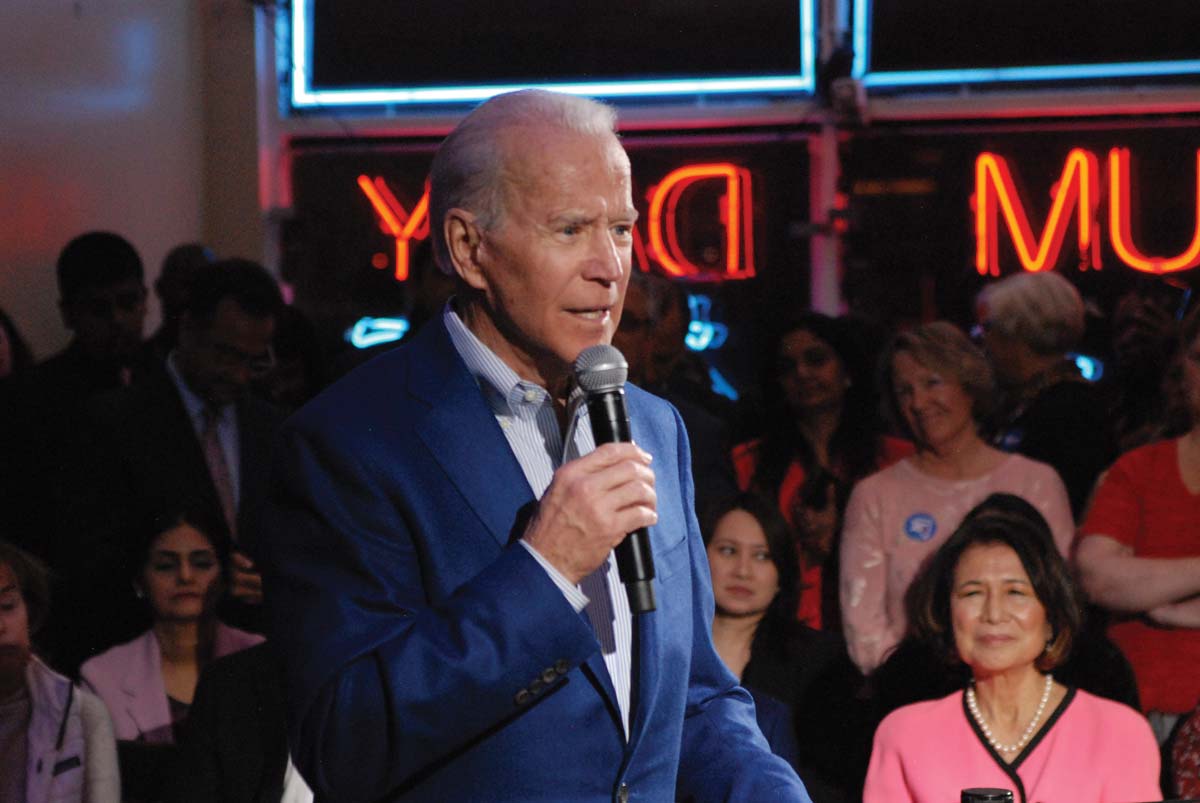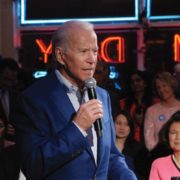
AS the administration of President-elect Joe Biden prepares to take over the White House, fellow liberal lawmakers, activists and operatives excitedly await the new administration that has promised policies and public servants that represent the growingly diverse American public.
Asian American and Pacific Islanders (AAPIs), who comprise the fastest-growing ethnic group in the U.S., have become more visible and vocal over the last decade in American politics, with activists and lawmakers propelling the community’s issues to the forefront.
Vice President-Elect Kamala Harris, the daughter of Jamaican and Indian immigrants, has already made history as the first female, Black and AAPI to serve in the position.
In addition to Harris, Biden appointed Chinese American Katherine Tai to serve as United States Trade Representative, the head of the government agency that is responsible for the development and recommendations of trade policy to the president of the United States.
Tai, 46, is an attorney who currently serves as the chief trade counsel for the U.S. House Committee on Ways and Means.
But AAPI groups are calling out Biden for neglecting to include enough Asian Americans or any Native Hawaiian or Pacific Islander in his cabinet appointments that became known in late 2020. The incoming administration will be the first in 20 years to not have an AAPI at the secretary level.
Since Norman Mineta served as U.S. Secretary of Commerce in the Clinton administration, becoming the first AAPI to hold a Cabinet position, the past three administrations have had at least one AAPI Cabinet secretary. President George W. Bush had two AAPIs in his Cabinet; President Barack Obama had three; and Trump had one, Elaine Chao, who has since resigned as Secretary of Transportation.
“Our elected officials owe a great debt of gratitude to the AAPI community. Many of their elections were made possible by the significant contributions of Asian American and Pacific Islander votes,” Christine Chen, executive director for Asian and Pacific Islander American Vote (APIAVote), said in a statement. “Approximately two-thirds of AAPI’s supported the new Administration, and AAPI’s turned out in record numbers during the general election. According to one analysis, AAPI voters increased their turnout relative to 2016 more than any other demographic group across the swing states.”
As previously covered by the Asian Journal, organizations like APIAVote as well as the National Council of Asian Pacific Americans (NCAPA) have been calling for more AAPI representation in Washington.
Biden’s cabinet (which hasn’t been fully confirmed by the U.S. Senate) includes the most women in any presidential cabinet in American history (an equal number of men and women), and a majority of its members are not white.
But with the growing number of AAPIs in government and law, NCAPA believes that there are “numerous qualified AAPIs who should be appointed to senior positions throughout the government.”
“The Biden Administration, by nearly every standard, has set a new benchmark for what a diverse and inclusive government should look like,” NCAPA said in a statement, adding that the omission of Native Hawaiian and Pacific Islanders and “lack of AAPI representation among Cabinet Secretaries is an egregious step backwards.”
For years, the fight for AAPI visibility in Washington has been akin to having the community’s specific needs addressed by top officials in all three branches of the federal government. Throughout the COVID-19 pandemic, AAPI senators and House representatives have put forth proposals, policies and memoranda fighting against anti-Asian racism that re-emerged last year.
With more AAPI representation in the federal government, it is the hope that those issues — including linguistic availability, data disaggregation, health care, immigration and other issues that pertain directly to the AAPI community — will be made a priority.
The National Asian Pacific American Bar Association (NAPABA) also weighed in on the lack of an AAPI Cabinet secretary.
“NAPABA stands dismayed that AAPIs will not be represented at the Secretary level position in the inaugural Biden Cabinet,” A.B. Cruz III, president of NAPABA, said. “While there have been many historic positive firsts for the incoming Administration, the AAPI community cannot help but feel dismissed.”
The lack of AAPI figures in the president-elect’s announced cabinet, however, may not represent the future of his cabinet over the next four years. Customarily, secretaries step down from positions, opening up the potential for future AAPIs to take over. Despite the oversight in Biden’s first cabinet announcements, Cruz hopes that Biden will keep the AAPI community in mind for future appointments.
“We trust the new administration will specifically address this apparent disconnect by nominating and placing AAPIs into key leadership roles going forward,” he said.







